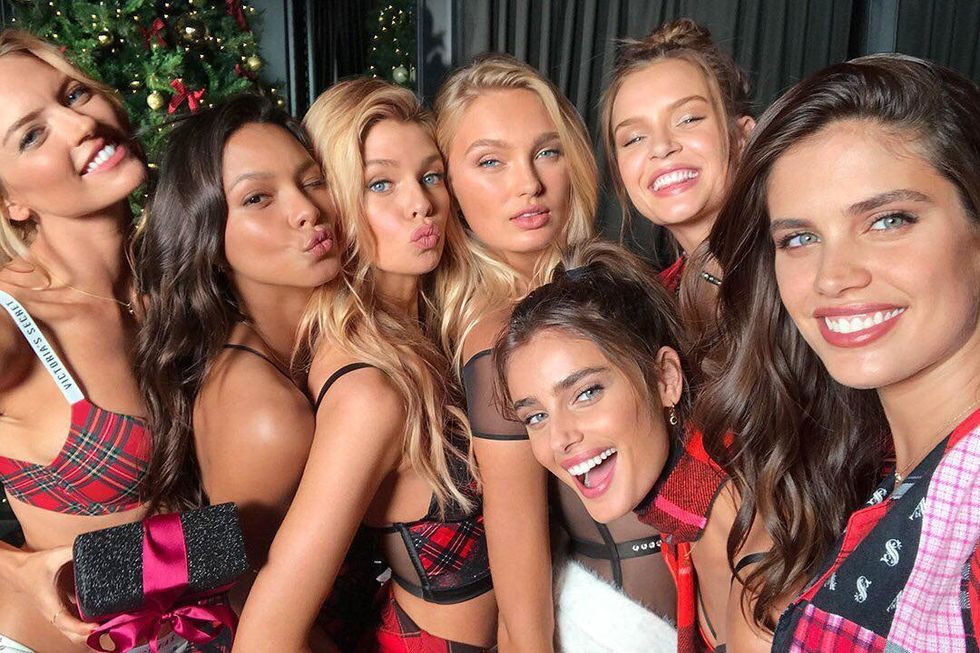On November 8, 2018, as the annual Victoria's Secret Fashion show was set to film and backstage its most recognized models, including Sui He, Candice Swanepoel, Adriana Lima, and Romee Strijd, prepped and interviewed, their Chief Marketing Officer Ed Razek's interview with Vogue.com was going viral.
It's no secret the lingerie company is exclusive in the models it hires to represent the brand. Even its most diverse models, spanning from Asian to Black and Brazilian, mirror typically white features, and the models make no effort to hide the months of physical training and dietary rules they keep to achieve their slim runway bodies. The last time the show even attempted to include "plus-size" models was in 2000, which Ed Razek himself dubbed a failure.
However, most critics drew the line after Ed Razak's comments to Vogue were released prior to filming that Thursday in which he essentially stated that transgender and larger-sized models would not be seen on Victoria's Secret runway anytime soon, even though he made it clear they have considered their inclusion in the past. The remarks sparked an outrage online and several models responded with social media postings expressing their support for the transgender community.
The question here is, should Victoria's Secret feel obligated to incorporate transgender and plus-sized models into their shows to represent "all women?" Or are they at liberty to determine who and what their brand represents, and the specific women who will don their lingerie on the runway?
Like any brand, Victoria's Secret is just that: a brand, with a targeted consumer, a determined aesthetic, and deliberate marketing strategy to draw that consumer in and keep them as life-long buyers. More than that, Victoria's Secret, with its internationally televised annual fashion show (that draws in nearly 1.6 billion viewers in 190 countries), has transformed into a label filled with superstar models backed by a devoted fan base. The company extends beyond its retail shops. It's a source of entertainment and as Ed Razek puts it, "a fantasy."
To force Victoria's Secret, or any brand or company for that matter, to alter who represents their product for the sake of political correctness is misguided.
If you don't approve of the models who walk in their shows, don't buy their clothing.
Further, the Victoria's Secret Fashion Show is comparable to the Superbowl of modeling. The sixty models selected to walk are chosen from hundreds of models who, in addition, beat out thousands of other models to simply land that audition. They work incredibly hard to become physically fit for the runway, to the point that several high-fashion brands refuse to allow them to walk in their shows, deeming them too fat. To belittle their work and efforts in the name of "inclusion" is what's genuinely shameful.
Yes, it may be disappointing to the plus-size or transgender models who dream of walking for Victoria's Secret or the customers who don't see themselves represented in their marketing that the company refuses to reassess its image, but several other brands including ThirdLove or Savage X Fentyexclusively market to these women. Like any fashion line or clothing company, not every consumer will feel inclined to buy their products, so they choose another store to shop at. However, that does not determine the preferences of other consumers, and many women around the world, like me, are fond of the Victoria's Secret brand and what their models represent.
To me, they're fit, beautiful, and empowering women who faithfully back the people and company they represent.
If you don't agree, that's OK; but don't slander the models who spend years with Victoria's Secret as the end goal of their career in mind or the women who feel empowered and beautiful in their clothing is unjust and really, quite ironic. If your intention as one of these critics is to see the support and acceptance of all women, that must include those who work tirelessly to achieve the bodies and careers that you're shaming for being too "perfect."
















